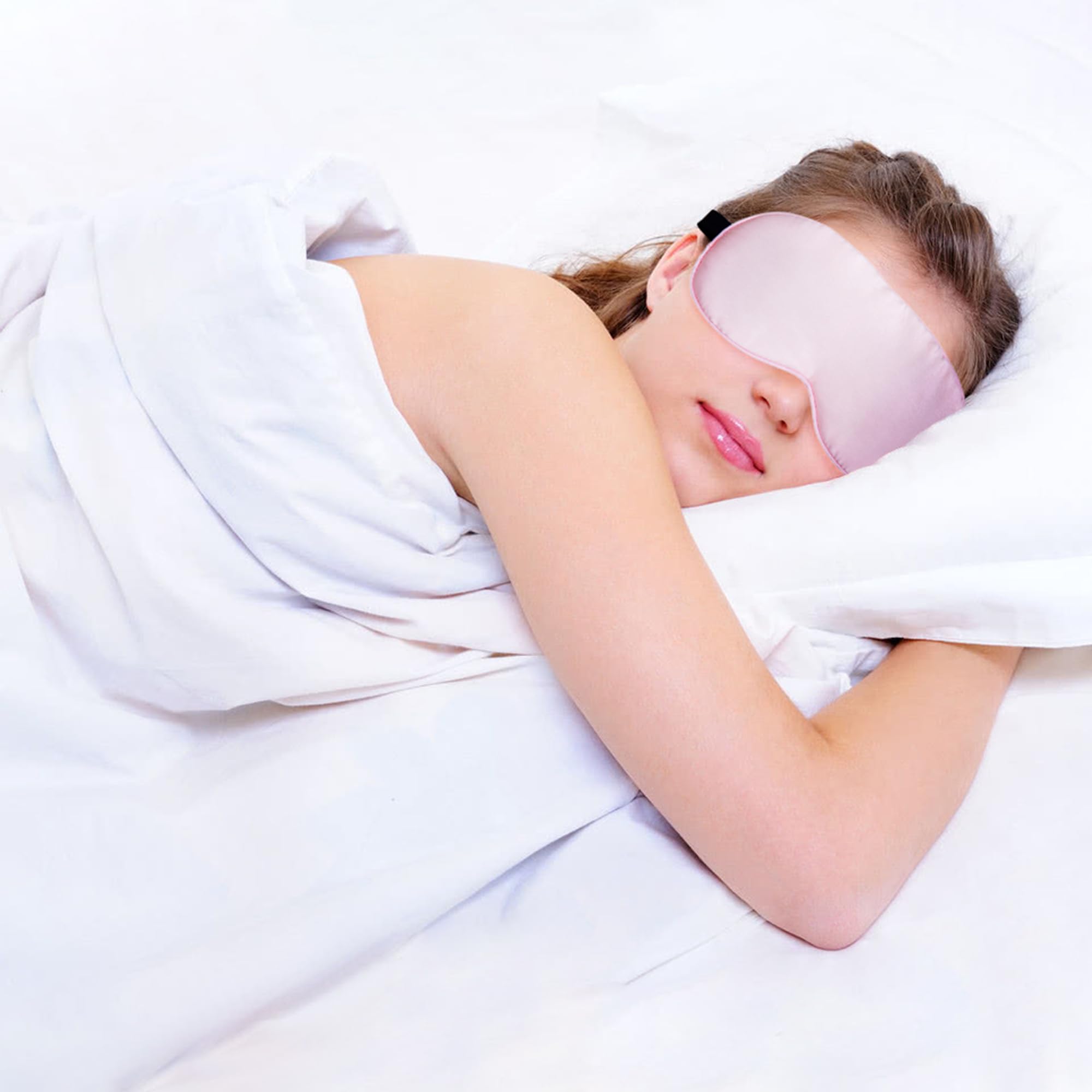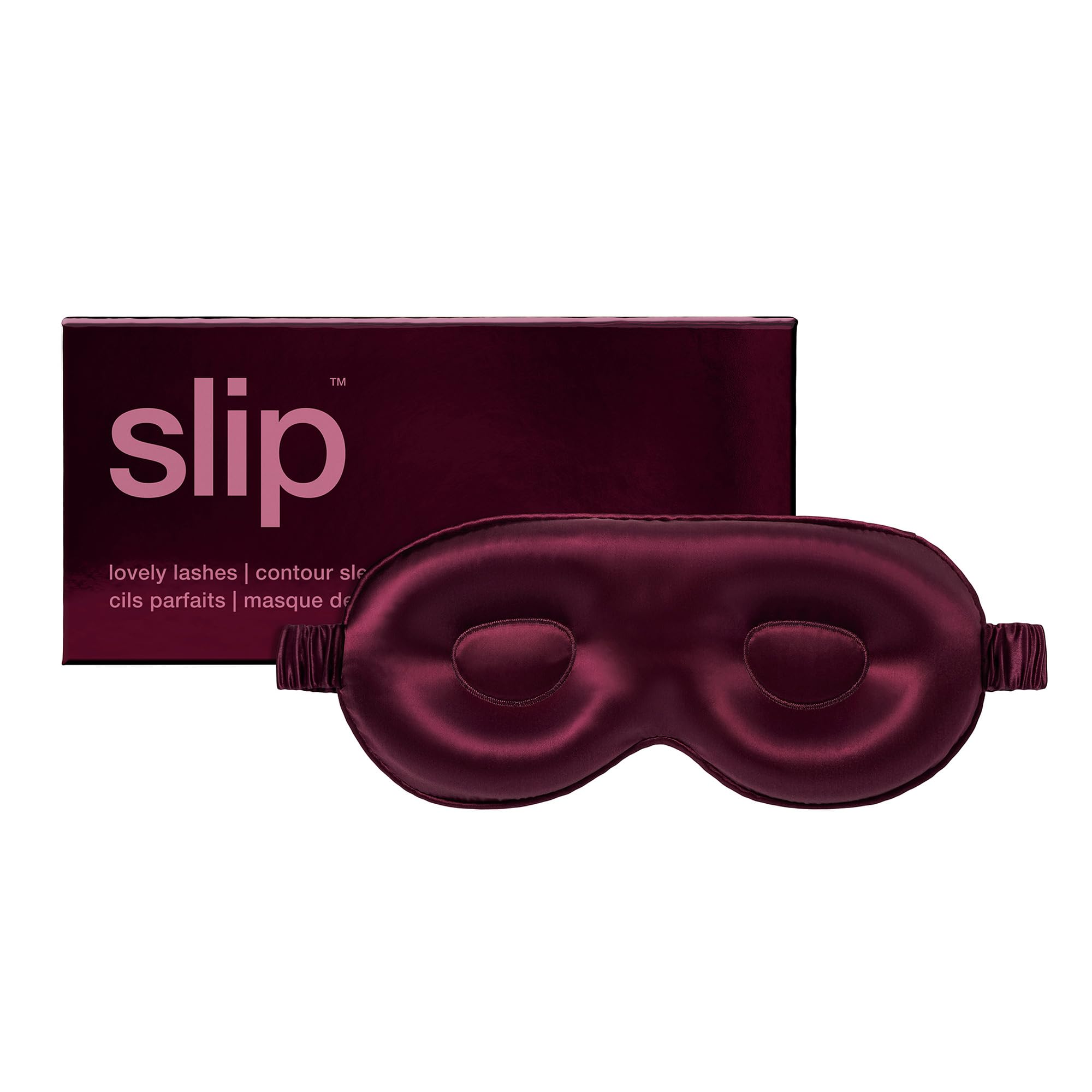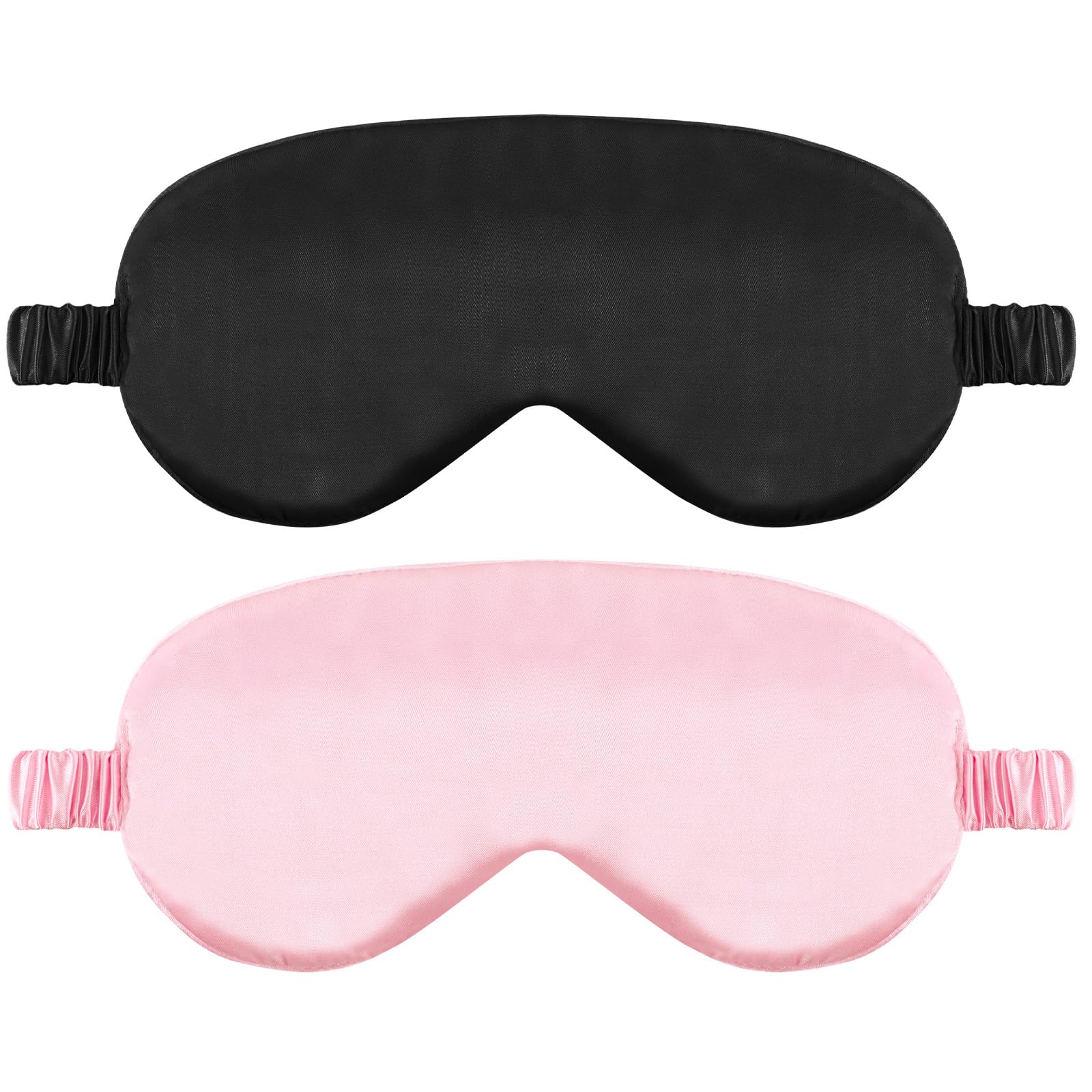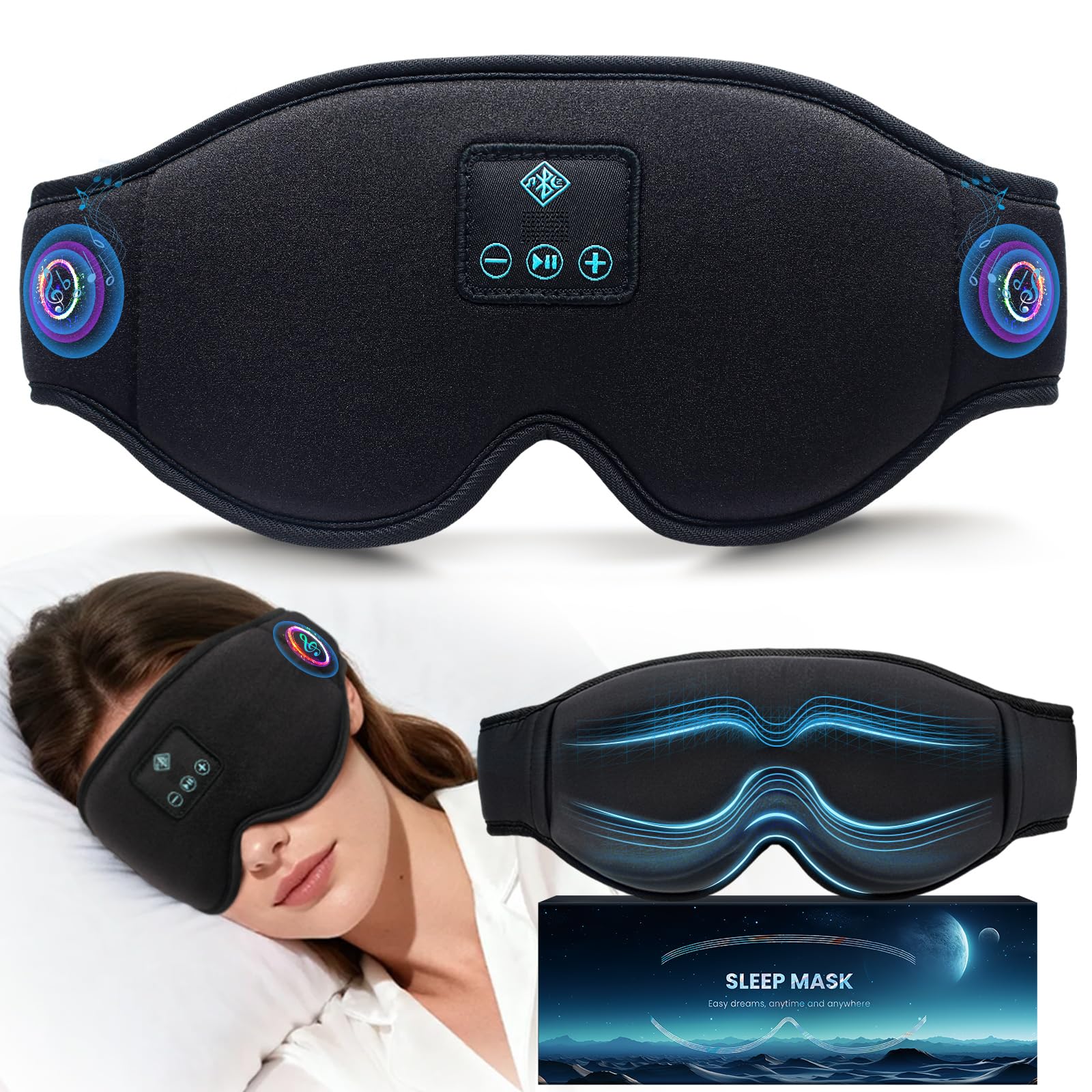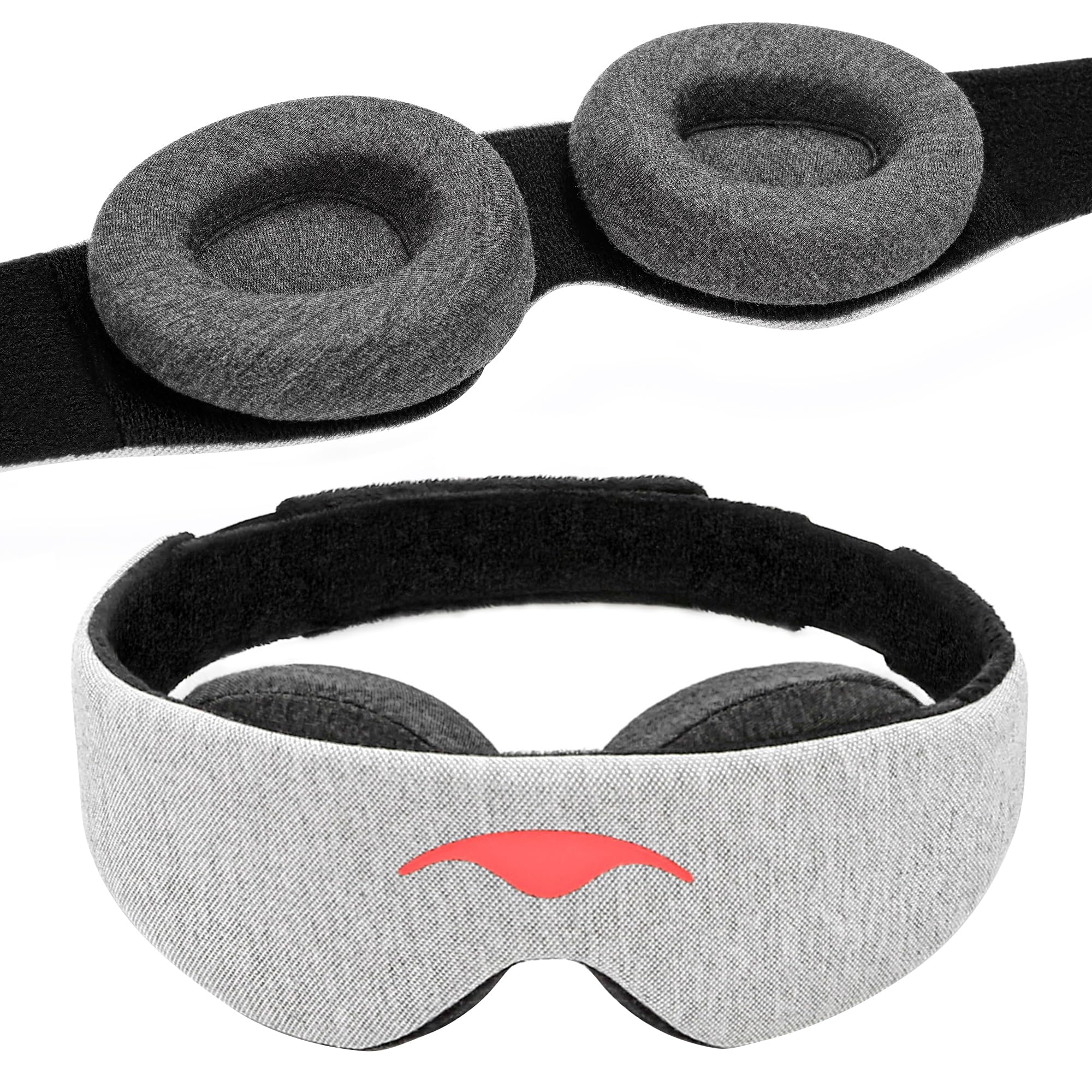Darkness signals your body to release melatonin and prepare for sleep. In real life, streetlights, early summer sun and glowing devices keep bedrooms brighter than your brain prefers. A good sleep mask reduces light to near darkness, which can help you fall asleep faster and wake less often. This guide explains when masks help most, how to pair them with simple habits, and what to choose if you want deeper sleep at home or on the move.
Light stays out with sleep masks that seal at the nose.
Why Darkness Helps
Light suppresses melatonin, the hormone that signals your circadian rhythm. Even low light can delay sleepiness and lead to shallower sleep. A sleep mask blocks light at the eyes, which matters most for the signal your brain receives. If your bedroom has light leaks you cannot control, a mask provides a reliable personal solution.
When a Mask Makes the Biggest Difference
Masks shine in specific situations: early morning light in summer, night shifts and daytime sleep, travel on planes or trains, and bedrooms with unavoidable street lighting. They also help when you share a room with someone who reads on a tablet at night. If insomnia is tied to racing thoughts rather than light, a mask will not fix the cause, but it can remove one barrier to drifting off.
Design Features That Matter
Look for blackout designs with shaped nose bridges to block light at the nose, which is the most common leak point. Soft rims and low profile cups prevent pressure on the eyes and are comfortable for side sleepers. Adjustable, wide straps keep the mask stable without tightness. For hot sleepers, choose breathable fabrics and ventilated weaves so moisture does not build up around the eyes.
Pair With Night Routines
Light hygiene multiplies the benefit of a mask. Dim lights in the hour before bed, avoid looking at bright screens, and consider a warm shower that allows natural cooling at bedtime. Keep a consistent schedule where possible. If street light leaks are severe, add blackout curtains or a draft stopper under the door and use the mask as the final layer of darkness.
Travel Tips
For flights, choose a low profile mask that sits flat and a small case to keep it clean in bags. Pair with soft earplugs to reduce engine noise. On trains and coaches, position yourself away from bright lights when you can. A mask that washes easily at a hotel sink is practical for longer trips.
FAQs
Comfortable designs that block light well feature in sleep masks for UK readers. Where noise is an issue, many combine masks with comfortable earplugs for a calmer room.
Do sleep masks improve sleep quality? They can by reducing night and early morning light, helping you fall asleep faster and stay asleep longer. The biggest gains come when light is the main barrier.
Are masks safe for eyelash extensions? Choose a mask with shallow cups that keep fabric off the lashes. Avoid tight masks that press on the lids.
What if a mask feels uncomfortable? Try different strap styles, softer fabrics, or contoured designs. Comfort is key; the best mask is the one you forget you are wearing.
